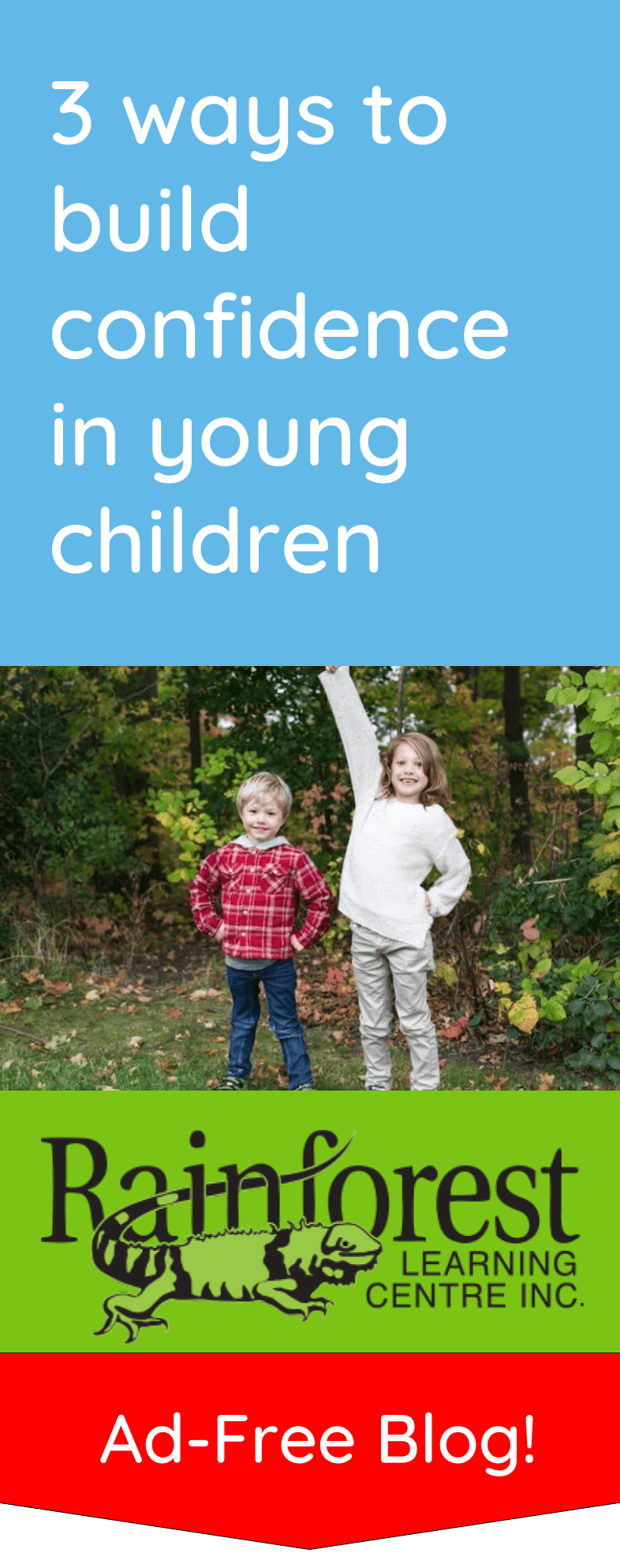
Confidence is something that can be constantly developed in young children. As your young ones reach new milestones, like the first day of daycare or making a friend on the playground for the first time, they will have many opportunities to foster their confidence. As Psychology Today states, “A confident child displays a belief in his or her own abilities.” This means that they trust in themselves. To build confidence in young children, try following these three tips below.
1. Let early learners make their own choices and decisions to build their confidence
Teaching young children to make their own decisions is a great way to start encouraging them to build their confidence. Decision-making doesn’t need to mean your little ones come up with all their own ideas, which can sometimes cause stares from strangers or even danger (if you know what we mean!).
Letting kids make decisions to build their confidence could mean that you start by giving them two options to choose from (a great helper when you want to them to eat the chicken, or the broccoli, and don’t want that question to be open-ended!). By making choices independently at a young age, your children will “gain confidence in their own judgement,” according to Parents.com.
2. Encourage little ones to problem-solve, and be responsible
Even young children can learn to solve problems on their own. This ability to problem-solve can lead to more confidence in kids, according to the research of Myrna Shure, author of Raising a Thinking Child (noted in the Parents.com article linked-to above).
As younger children try solving their own problems, you will need to help them work through the process. This could include helping them identify the problem with a little prompting, and by offering suggestions. As they strengthen their problem-solving skills, you can pull back on the amount of help you provide.
You can also invite little ones to help you solve problems at home or in the classroom that they have contributed to. For example: when they colour on the wall or play with a delicate or messy item. Instead of scolding young kids when mishaps happen, ask them to help with the solution to the problem. This will be a golden opportunity to help them learn responsibility, and problem-solving at the same time! This could further support a child’s confidence-building.
3. Give positive, descriptive feedback for effort in the early years
Instead of saying things like “you’re so smart” or focusing on results, try focusing on the process a child went through to achieve the results. Make note of how hard they worked to get there.
You could try asking how they figured out the solution to the problem, or complimenting their effort. Or, try discussing what they learned while making something, and ask what they might do to make it better next time.
As Psychology Today points out, praises like “good job” really don’t allow a young child to develop an ability to “evaluate” their own work, since it doesn’t give any criteria to follow in the future. By giving positive, focused feedback, early childhood learners can develop their own evaluation skills. This way, they be able to recognize the merits of their efforts (and their results) as they grow older.
To conclude: you can build confidence in young children early on in life
Children are exposed to new environments, problems, and experiences every single day in their early years. By encouraging little ones to build their confidence, even in simple ways, you help to increase their self-esteem, thus, hopefully setting them up for success. So, next time your toddler comes to you upset because their toy rolled under the couch (or another frustrating problem), see what happens when you encourage them to solve the problem themselves!
See more on our blog:
